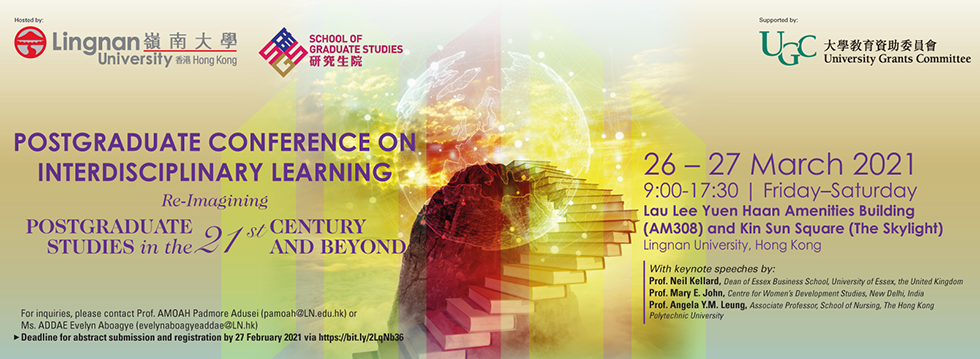
Explore the effectiveness of online teaching and learning of morphological awareness for linguistically underprivileged English medium university students (in Sri Lanka)
Start Date
26-3-2021 5:00 PM
End Date
26-3-2021 5:15 PM
Description
In the proposed study, researcher will investigate the online teaching and learning of morphological awareness with the main purposes of assessing the improvement of the level of vocabulary and grammar of students studying in the medium of English. Specifically, this study aims to compare the success rate of students learning English completely online and those following blended learning. Due to COVID-19 pandemic, education has changed intensely, with the distinctive rise of online learning, whereby teaching and learning are undertaken remotely and on digital platforms. The advantages and disadvantages of online teaching and learning have become apparent in different phases of our modern life particularly in higher education without face-to-face interaction between teachers and students in classrooms. Though there are advantages and disadvantages of online teaching and learning, with this present situation in the country and the world, researcher determined to investigate the effectiveness of only online and blended teaching and learning of morphological awareness for low English proficiency learners studying vocabulary and grammar in Sri Lankan universities. The Community of Inquiry (CoI) framework highlights social presence, teaching presence, and cognitive presence as essential elements to facilitate successful educational experiences in online distance learning environments. Garrison et al. (1999) proposed a CoI model for educational developers to assist in the organisation of online and blended educational experiences. Therefore, the researcher will use the CoI model developed by Garrison and Anderson (2003) and Vygotsky’s sociocultural theory as a base for the proposed research.
Recommended Citation
Wickramasekera, W. N. M. (2021, March). Explore the effectiveness of online teaching and learning of morphological awareness for linguistically underprivileged English medium university students (in Sri Lanka). Presented at the Postgraduate Conference on Interdisciplinary Learning: Re-Imagining Postgraduate Studies in the 21st Century and Beyond. Lingnan University, Hong Kong.
Explore the effectiveness of online teaching and learning of morphological awareness for linguistically underprivileged English medium university students (in Sri Lanka)
In the proposed study, researcher will investigate the online teaching and learning of morphological awareness with the main purposes of assessing the improvement of the level of vocabulary and grammar of students studying in the medium of English. Specifically, this study aims to compare the success rate of students learning English completely online and those following blended learning. Due to COVID-19 pandemic, education has changed intensely, with the distinctive rise of online learning, whereby teaching and learning are undertaken remotely and on digital platforms. The advantages and disadvantages of online teaching and learning have become apparent in different phases of our modern life particularly in higher education without face-to-face interaction between teachers and students in classrooms. Though there are advantages and disadvantages of online teaching and learning, with this present situation in the country and the world, researcher determined to investigate the effectiveness of only online and blended teaching and learning of morphological awareness for low English proficiency learners studying vocabulary and grammar in Sri Lankan universities. The Community of Inquiry (CoI) framework highlights social presence, teaching presence, and cognitive presence as essential elements to facilitate successful educational experiences in online distance learning environments. Garrison et al. (1999) proposed a CoI model for educational developers to assist in the organisation of online and blended educational experiences. Therefore, the researcher will use the CoI model developed by Garrison and Anderson (2003) and Vygotsky’s sociocultural theory as a base for the proposed research.

